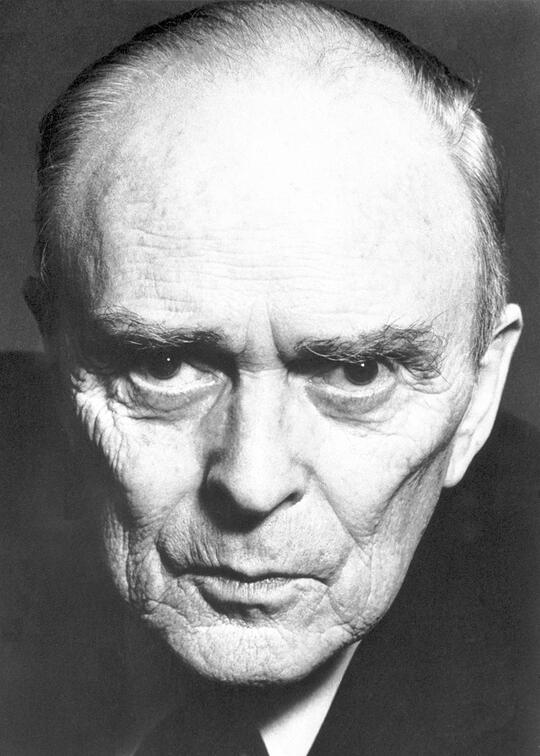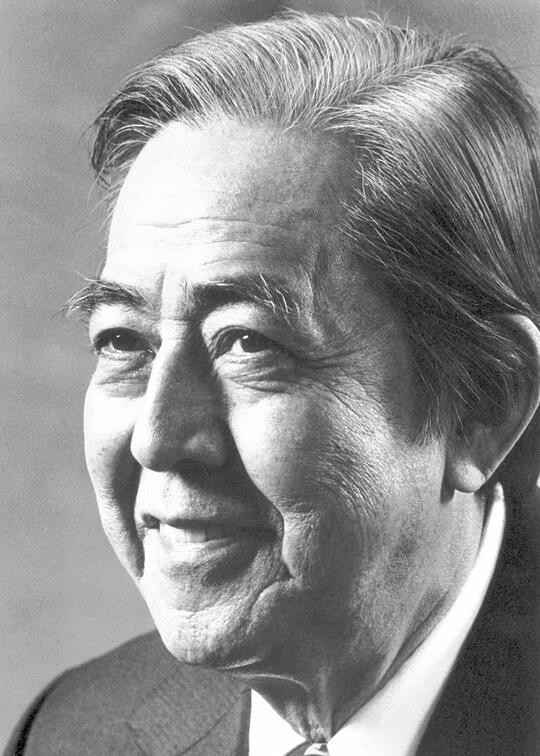1974
Seán MacBride
for his efforts to secure and develop human rights throughout the world
Eisaku Satō
for his contribution to stabilize conditions in the Pacific rim area and for signing the Nuclear Non-Proliferation Treaty

Seán MacBride (1904 - 1988)
Ireland
From the IRA to Amnesty International
Seán MacBride received the Peace Prize for his efforts on behalf of human rights, among other things as one of the founders of Amnesty International. In 1974 he was also Chairman of the International Peace Bureau and Assistant Secretary-General of the United Nations, and had recently been elected UN Commissioner for Namibia. MacBride had nevertheless had a violent past. His father was killed in the Irish struggle for liberation from Great Britain, and he was only 13 when he joined the IRA. He took part in the concluding battles with the British before the Irish Republic was founded in 1921, and in the civil war that followed. MacBride backed Eamon de Valera in the latter's refusal to accept Northern Ireland's continuing union with England. In the 1930s, MacBride broke with the IRA and qualified in law. He defended IRA prisoners in Irish prisons who had been condemned to death. After World War II he was for a few years Minister for External Affairs for Ireland. He played a leading part in the establishment of the Council of Europe, and in the preparation of the European Convention on Human Rights of 1950.
Eisaku Satō (1901 - 1975)
Japan